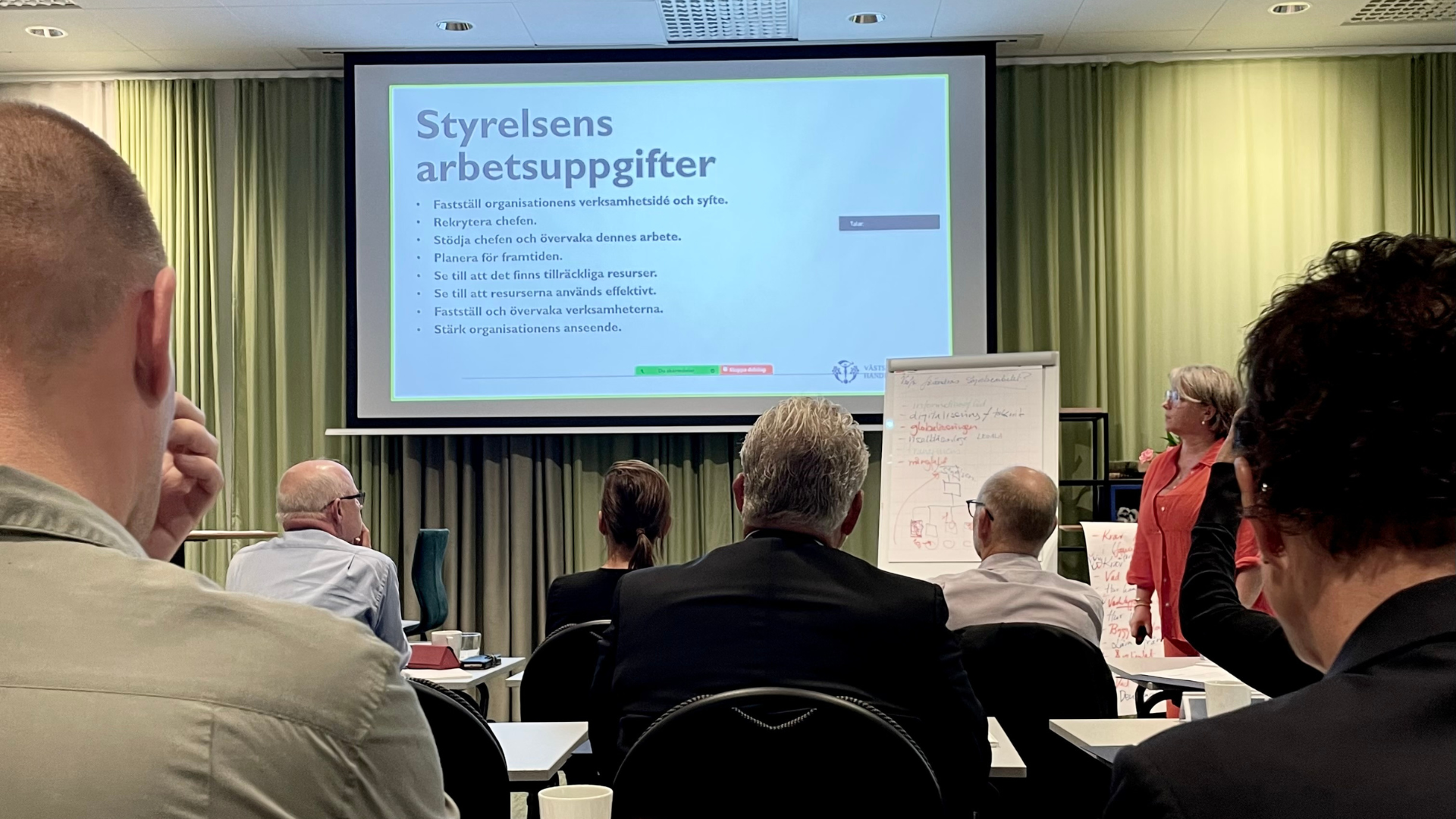The Boardroom’s strategic role for long-term growth and innovation

Vision and strategy: the foundation of long-term success
In my experience, there’s an undeniable truth that too many companies overlook: a clearly defined vision and strategy is the cornerstone of long-term success. In today’s fast-paced global market, companies must do more than react to external changes — they must proactively anticipate them.
This requires more than operational efficiency or cutting-edge products. It begins in the boardroom, where the foundation for a company’s future is laid.
The importance of strategic clarity
In an era where market dynamics shift faster than ever, the ability to differentiate is crucial. Companies that succeed are those that clearly articulate their unique value proposition and align their internal efforts with external opportunities.
Yet, far too often, boards miss this critical opportunity. Instead of driving strategy, they become mired in compliance and financial oversight. And while these responsibilities are essential, they are not enough to ensure a company’s survival or prosperity.
A common barrier I have encountered among leaders is the absence of strategic clarity. A board that truly understands its role can act as the guiding force that helps channel talent, capital, and innovation in the right direction. Without a clear direction, even the most capable executive teams can be left to pull in disparate directions, resulting in wasted time, resources, and a lack of coherent progress.
Proactive leadership for long-term success
Throughout my career, I have always prioritized a forward-thinking approach in the organizations I serve. From high-profile projects to advisory roles, I have seen firsthand the importance of aligning vision with market trends. When board discussions revolve around both innovation and practicality, companies are better equipped to navigate complex market challenges and seize new opportunities. The key lies in finding the balance between fostering creativity and ensuring that strategic decisions are grounded in reality.
However, this proactive mindset must begin with the board itself. Without the realization that board members have a crucial role in driving vision and strategy, companies are left vulnerable. Too often, I’ve seen organizations measure their progress solely by financial indicators, which, while important, provide only a partial view of success. Numbers alone cannot capture the innovation, adaptability, or market positioning needed for sustained growth. It is the board’s responsibility to ensure that the company’s vision extends beyond the balance sheet.

A legal responsibility to define strategy
Effective corporate governance must actively shape a company’s vision and long-term strategy, providing not just oversight but inspiration and direction. A well-defined vision aligns the company’s actions with its long-term goals, fostering cohesion across departments and empowering employees at every level to contribute meaningfully. In contrast, when boards fail to focus on strategy, the entire organization suffers from a lack of cohesion, ultimately stifling growth and innovation.
Many forget that, in Sweden, it is not just a best practice for boards to guide strategy and vision — it is their legal obligation. According to Swedish law, the board's primary responsibility is to ensure the company’s organization is structured in such a way that it achieves its objectives, which inherently involves defining the strategy and vision of the company. The Swedish Companies Act (Aktiebolagslagen) explicitly charges the board with managing the company's affairs, which includes shaping its overall strategic direction. It is the board’s job to ensure that the company not only stays compliant but also thrives through the implementation of a long-term, cohesive strategy. Failing to do so is not just a missed opportunity — it’s a dereliction of duty.
Strategic foresight: a core competency for future-proofing companies
Therefore, a visionary mindset combined with experience in active market intelligence and external analysis is essential for effective board leadership. In a world marked by rapid technological advancement, geopolitical shifts, and environmental changes, boards must be able to foresee and evaluate the impact of major global trends. This involves not only understanding current market conditions but also predicting future shifts. The ability to draw forward-leaning conclusions — taking into account the far-reaching effects and potential outcomes of strategic decisions — is critical for long-term growth and sustainability. Board members must engage deeply with ongoing developments and weigh their decisions in light of future consequences. Active external analysis is no longer optional but a core competency for boards seeking to future-proof their companies.
Board governance, therefore, is not merely an administrative task; it is a vital profession requiring deep expertise, strategic foresight, and the ability to lead through uncertainty. Ensuring that decisions are grounded in comprehensive analysis and forward-looking vision enables boards to navigate turbulent markets better and seize emerging opportunities. In this context, the board's role is to safeguard current operations and be a strategic architect, steering the company towards future success.

Navigating global challenges with forward-thinking leadership
Like businesses worldwide, companies in Sweden and the Nordics grapple with the complexities of globalization, technological disruption, and evolving consumer demands. Now, more than ever, leadership must be both proactive and forward-thinking.
Throughout my career, I have supported leaders in shaping and refining their organization's vision to resonate with their markets. But over time, I’ve often noticed a missing piece — the absence of a clear, guiding vision and strategy that illuminates the way forward like a guiding star.

To better equip myself to support leaders and drive sustainable growth, I recently completed a board certification through West Sweden Chamber of Commerce (Västsvenska Handelskammaren), under the guidance of Catherine Morton-Fincham and board professional Sophie Nornemark Persson. This experience has deepened my understanding of strategic leadership, provided me with advanced analytical tools, and reinforced my belief in the pivotal role of a clear vision as the foundation of effective leadership.
Additionally, I have secured a place in the prestigious mentorship program, Young Board Talents, with seasoned board professional Hans Rosenhoff as my mentor. This opportunity will allow me to deepen my understanding of board governance further and refine my skills.
Ultimately, I aim to foster leadership that embraces strategic clarity, resilience, and innovation. It is my firm belief that when boards actively drive a company’s vision, they unlock the full potential of the organization and its teams, creating the conditions necessary for businesses to thrive in an increasingly uncertain world. By championing this approach, I seek to ensure that boards evolve into stewards of today’s performance and architects of tomorrow’s success.
As we look to the future, businesses must evolve from reactive oversight to proactive thought leadership — guiding companies to navigate the complexities of today’s market with clarity and purpose. By continuing to help businesses navigate change and capitalise on opportunities, I aim to cultivate strategies guided by a focused, long-term vision.
This is not only a matter of corporate governance but a critical element for sustained success in today’s complex business landscape.
What are your thoughts?
- Can leaders do more to ensure long-term strategic clarity?
- How can leaders ensure their strategy stays aligned with rapidly changing market dynamics?
- How can boards more effectively contribute to long-term strategic clarity within their organizations?

